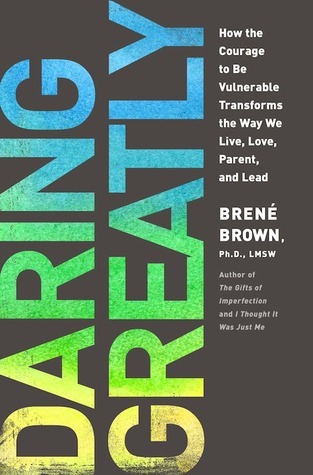
Rising Strong: The Reckoning. The Rumble. The Revolution
Book Description
Dare to rise from the ashes of failure and face the raw, unfiltered truth of vulnerability. In "Rising Strong: The Reckoning. The Rumble. The Revolution," Brené Brown unlocks a transformative journey through the messy landscape of courage, resilience, and wholehearted living. With gripping insights and relatable stories, she explores what it really means to confront setbacks and emerge stronger than before. This powerful manifesto challenges the norm, igniting a revolution within the soul. Are you ready to embrace your own story, wrestle with your fears, and discover the strength that lies in rising strong?
Quick Book Summary
"Rising Strong" by Brené Brown delves into the process of recovering from personal and professional failures, emphasizing vulnerability as the path to resilience. Through research, storytelling, and personal anecdotes, Brown outlines a transformative approach that encourages readers to confront uncomfortable emotions, challenge their own narratives, and reevaluate their responses to setbacks. The book introduces a three-step process: The Reckoning (recognizing emotions), The Rumble (exploring and questioning our stories), and The Revolution (applying new perspectives to live more courageously and authentically). Brown’s work centers on the idea that growth requires embracing the full spectrum of human experience, including shame and disappointment, to cultivate strength, empathy, and creative problem-solving. "Rising Strong" ultimately teaches readers to own their stories, rise above their fears, and inspire change within themselves and others.
Summary of Key Ideas
Table of Contents
Embracing Vulnerability in Failure
Brené Brown begins by reframing the common fear of failure, proposing that setbacks are not the end but rather the starting point for meaningful transformation. She asserts that courage and wholeheartedness come through facing our failures with openness and curiosity, rather than avoidance or denial. Brown argues that people often numb or ignore difficult emotions, but true progress happens when we choose to engage with vulnerability. This engagement is the first step in building the resilience and confidence necessary for rising strong after adversity.
Owning and Exploring Our Stories
The book introduces the concept of The Reckoning, which is the act of recognizing and acknowledging our emotional reactions in the heat of struggle. Brown emphasizes the importance of being mindful and attuned to our feelings, as they provide valuable information about what matters most to us. By pausing to identify emotions, rather than suppressing them or acting impulsively, individuals can lay the groundwork for more honest self-inquiry and authentic healing.
The Process of Emotional Integration
After becoming aware of our emotions, Brown describes The Rumble: an introspective phase where we critically examine the narratives we tell ourselves about our experiences. She challenges readers to question assumptions, confront shame triggers, and investigate the roots of their feelings. This process involves rigorous self-reflection and the willingness to interrogate our "conspiracy theories" about others' intentions and our own self-worth. The Rumble is messy and uncomfortable, but Brown insists that it's crucial to rewrite our stories in ways that are rooted in truth and empathy.
Transforming Struggle Into Personal Growth
The final step, The Revolution, is when these new insights are integrated into daily life. Brown illustrates how rising strong requires us to live out our revised stories, adopting new perspectives that foster connection, resilience, and joy. This phase is not just about personal transformation, but also about impacting others by leading with empathy and vulnerability. By modeling this behavior, individuals create cultures of trust and innovation at home, work, and in their communities.
Cultivating Empathy and Authentic Leadership
Throughout the book, Brown offers practical tools and examples, encouraging readers to see vulnerability as a source of creativity and strength rather than weakness. She underscores the necessity of owning our stories, engaging in honest conversations, and practicing empathy—both towards ourselves and others. "Rising Strong" ultimately promotes the idea that every person has the capacity to transform struggle into a catalyst for growth, leadership, and deeper relationships with themselves and those around them.
Download This Summary
Get a free PDF of this summary instantly — no email required.





